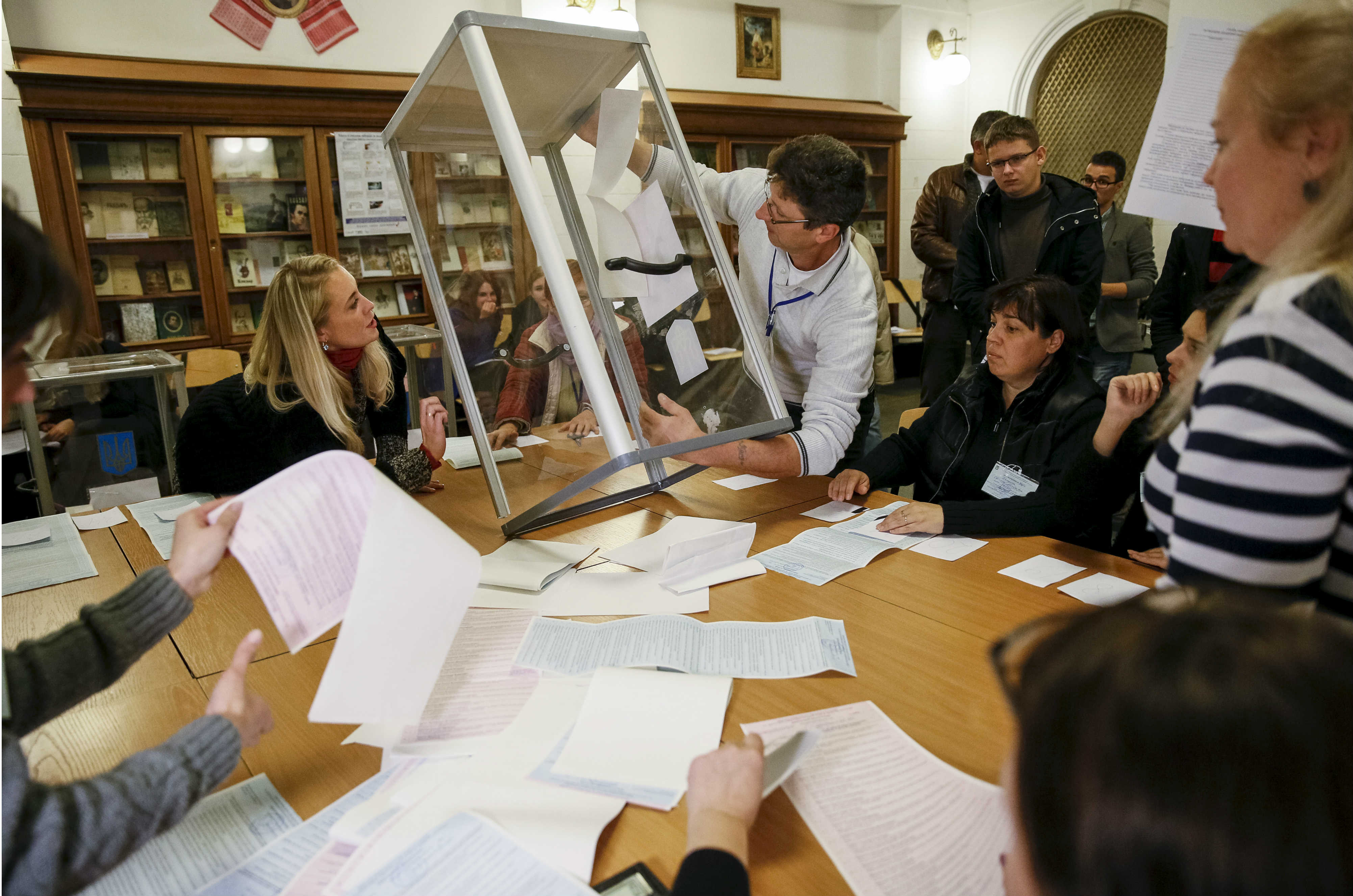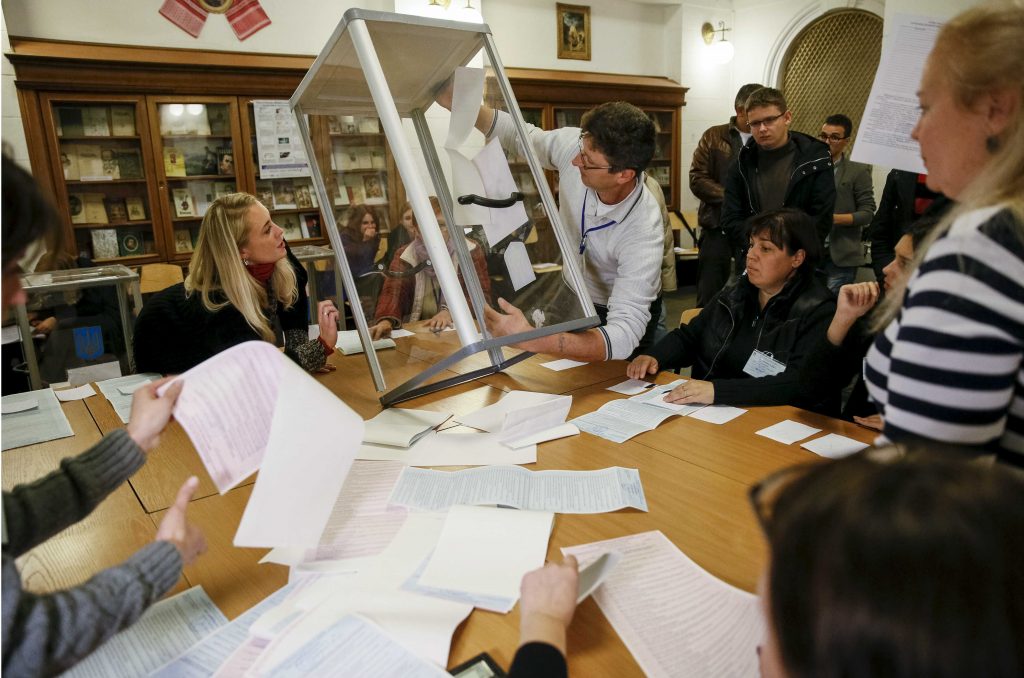 It’s no surprise that public opinion polls show that Ukrainians are largely disappointed with the same old faces and choices in politics. The candidates expected to run in the 2019 presidential election aren’t new. Out of frustration with the unaccountability of the current parliament, there was a big push this spring to switch to an open-list proportional election system for parliament. However, due to vested interests, the status quo is likely to prevail. What options do Ukrainians have for a better selection of candidates and a more democratic electoral system?
It’s no surprise that public opinion polls show that Ukrainians are largely disappointed with the same old faces and choices in politics. The candidates expected to run in the 2019 presidential election aren’t new. Out of frustration with the unaccountability of the current parliament, there was a big push this spring to switch to an open-list proportional election system for parliament. However, due to vested interests, the status quo is likely to prevail. What options do Ukrainians have for a better selection of candidates and a more democratic electoral system?
Political party primaries may be one solution. In the United States they originated as a way to break up the power of party bosses and involve more people in the political process. With Ukraine’s current closed-list proportional ballot system, and since less than two percent of Ukrainians are members of any political party, Ukraine could greatly benefit from the same internal party democratization and break up of the party bosses’ grip on power.
How do primaries work? In the United States, each state has different rules on how they conduct their internal primaries. The federal government is largely removed from the primary process with the exception of setting the date of the election. There are two main types of primaries: closed primaries allow only party members to vote, while open primaries allow voters to decide which primary ballot they want on election day, and thus are open to voters from other parties.
How would primaries work in Ukraine? It’s going to be tricky. Ukraine lacks the deep seated democratic values and ideological orientation of American political parties. The general lack of ideological parties leads to personality-driven parties rather than principle-driven ones. One recalls during 2008 when Yulia Tymoshenko’s Fatherland party was simultaneously vying for membership in the Socialist International as well as the European People’s Party, the center right of the European Parliament. The only consistent values and ideology for Fatherland were and continue to be what Tymoshenko decides.
Ten years later, the situation is not noticeably different. Thus, a lack of party ideology hinders the development of Ukrainian primaries, which are designed to reward the party faithful and to carry the party’s ideals forward in the general election. Where there are no values which unite the party members other than a cult of personality, the process is open for manipulation.
Assuming that Ukraine will have ideological-oriented parties again in the future (it did have them in Rukh, the Socialists, and Communists in the early days after independence), the next barrier to cross is defining party membership. Given Ukraine’s history of electoral fraud, open primaries are a recipe for electoral manipulation by the oligarchs and other parties. The only real option is for Ukrainians to hold closed primaries. With few real party members in any party, and with party bosses wielding wide latitude on granting membership, the field of voters that would select candidates in a closed primary is limited. However, if party membership actually gave individuals some rights, including voting in a primary, the numbers of party members would begin to increase. People don’t like political parties because they feel excluded from them, and a primary voting system could change that perception.
One other critical aspect of US primaries is that the party unites behind the winner of the primary to help them win the general election. The key principle is that internal party differences and conflicts are buried after the primary, so that the party’s candidate can have united backing to win. Ukraine’s political system has historically been about division and subtraction, but winning politics is about addition and multiplication. A party primary system might help change this cynical public mindset.
While time is short until next year’s elections, there’s still time for political parties to organize them now. If some of the current parties chose to conduct primaries and do so in a truly transparent and open manner, it would strike a contrast with the current group of personality-driven parties which dominate the political landscape. As confidence building measures, outside experts from the United States and Europe should be invited to adjudicate internal party rules. In addition, Ukraine should empower overseas voters to participate and make use of technology to allow absentee voters to participate online like the US federal system. Each party controls its own rules, and these innovations would attract the public’s attention. The winner of the primary may not win the general election, but the party has an opportunity to lead by example and thus finally change Ukraine’s political system for the better.
Brian Mefford is a Senior Non-Resident Fellow at the Atlantic Council and is the Director of Wooden Horse Strategies LLC, a governmental relations and strategic communications firm based in Kyiv, Ukraine.
Image: A member of a local electoral commission empties a ballot box after a regional election at a polling station in Kyiv, Ukraine, October 25, 2015. REUTERS/Gleb Garanich
